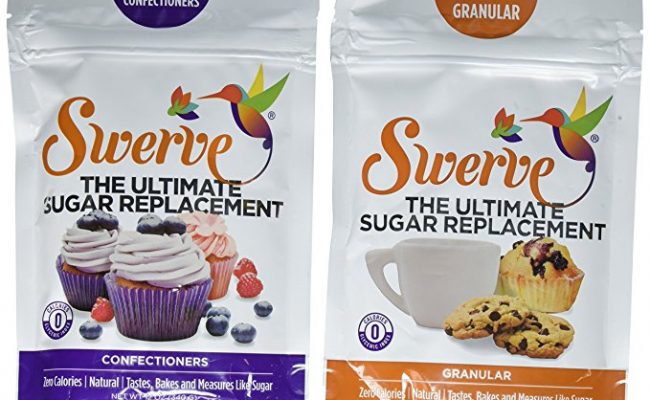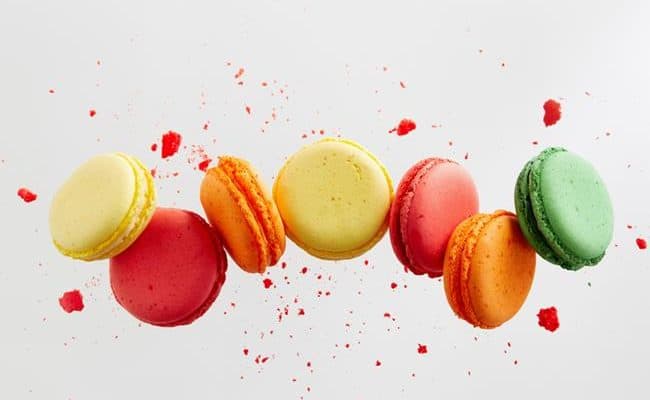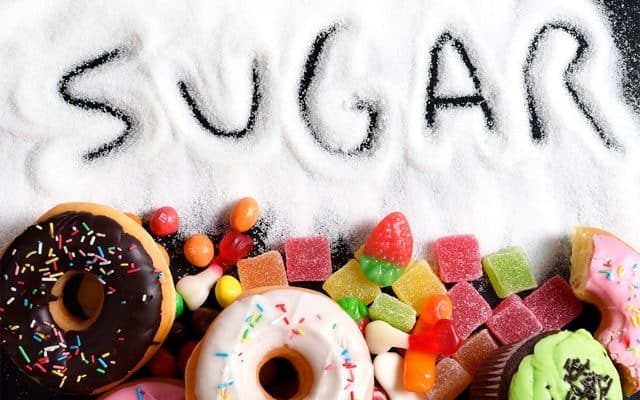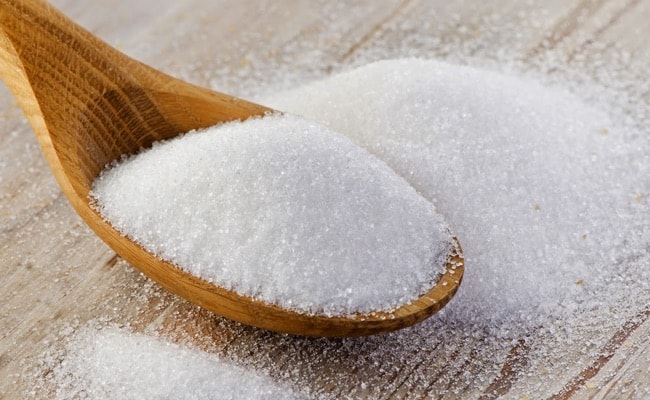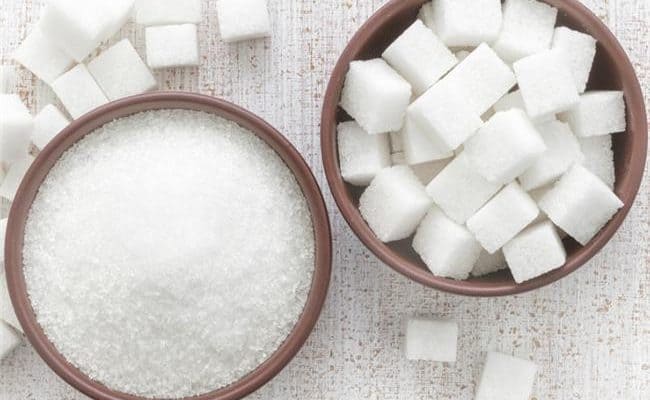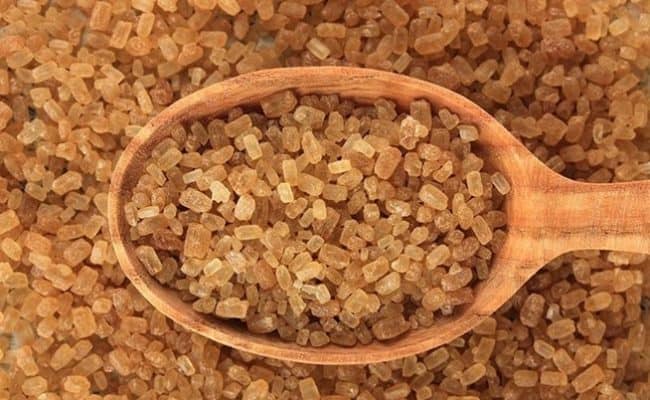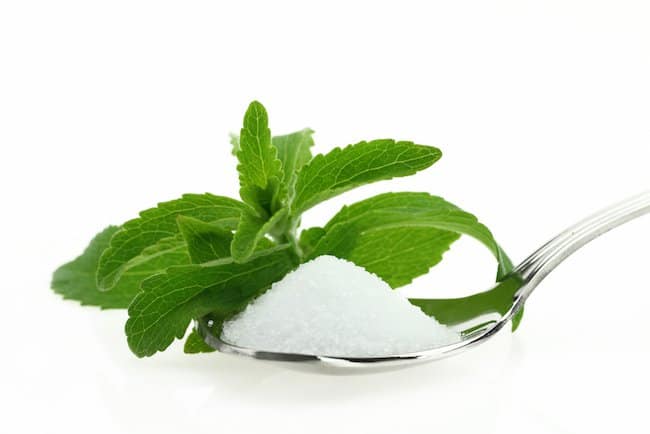
Sugar substitutes have been common alternatives for sweets, drinks and diet food because they are lower in calories and most do not raise blood sugar levels like real sugar. Sugar substitutes are recognized as generally safe from the FDA, but more research is coming out about some negative effects sugar substitutes could have, especially in large quantities.
Stevia and Truvia are marketed as natural sugar substitutes because stevia comes from a South American plant. However, just because Stevia is from a plant and Truvia contains part of the Stevia plant does not mean these substitutes should be eaten as much as you want.
Here are some considerations with Truvia and if it should be considered healthy or not.
What is Truvia made of?
The main component of Truvia is a sugar alcohol, erythritol. Sugar alcohols are virtually calorie free, and they do not raise blood sugar levels after ingesting. Our bodies can’t metabolize sugar alcohols, so after they get absorbed almost all of the sugar alcohols get eliminated through urine.
A concern with sugar alcohols is that if someone eats a large dose of sugar alcohols it can upset the digestive tract and cause nausea and possibly diarrhea.
Besides erythritol, Truvia contains a small percentage of Rebiana, which is derived from the Stevia plant. This part of the plant can be isolated and added to other foods and is called Rebaudioside A.
The Rebiana part of the plant is the sweetest part of the Stevia plant and does not leave a strong bitter after taste compared to other parts of the Stevia plant.
The last ingredient in Truvia is natural flavors. The word natural flavors has no clear definition, and it could mean virtually anything. Truvia marketing often says it is natural, but the way Truvia is made is a far cry from natural. It takes 42 steps of processing to make Truvia, and the Rebiana part of the Stevia plant needs to have chemical solvents added to it before it is added to the erythritol.
Truvia is primarily a sugar alcohol with a small amount of an altered part of the Stevia leaf. Lastly natural flavors are added, but this term could mean anything.
How is it different than Stevia?
Stevia can be just the leaves of the plant, made into a green powder from the plant or processed into a white powder from the sweetest part of the plant (the Rebiana part). Stevia can have a bitter or tangy after taste that may not be palatable for some people.
There is some research indicating Stevia may be beneficial for hypertension or type 2 diabetes, but more research is needed. People on blood pressure or medication to lower blood sugar should talk with their physician before eating Stevia.
Stevia is not as processed as Truvia and it does not contain the high amount of erythritol with only part of the Stevia plant derivative. There are many types of Stevia on the market, so check the label to see what part of the Stevia plant is used and if there is any other added ingredients.
Consequences of sugar substitutes
Stevia has some research studies suggesting it may have a positive effect on blood pressure or blood sugar regulation, but more research is needed for long term safety effects. Truvia’s effect on the body will not be the same as Stevia’s effect because Truvia contains a small percent of Stevia and is primarily sugar alcohol.
The concern with sugar substitutes, as a whole, is that they may interfere with feeling satisfied after ingesting them. Since they do not raise blood glucose, insulin is not released. When insulin is released that signals to the brain satisfaction after eating something.
With sugar substitutes, the satisfaction has not been met in the brain meaning you may be more likely to eat or drink even more. Whether it is a caloric sweetener or a calorie free sweetener, the consideration is still quantity. Just because you are drinking or eating foods that have sugar substitutes does not mean you can eat/drink as much as you want without possible negative consequence to your body.
Conclusion
Truvia is primarily made from a sugar alcohol, erythritol. A derivative of the Stevia plant, Rebaudioside A, is then added to the sugar alcohol. The last ingredient for Truvia is natural flavors, which is an ambiguous term that does not really say what it is derived from.
Truvia is a highly processed substance and is different than Stevia. Stevia is usually made from the leaves of the Stevia plant, although some Stevia products can have other ingredients added.
For any sugar substitute or sugar product, the question should be “How much am I using this?”. Quantity is important as eating too much sugar alcohols can have an impact on the digestive tract and other impacts on hunger and satiety in the brain can be adversely affected from high amounts of sugar substitutes.
References used in this article
